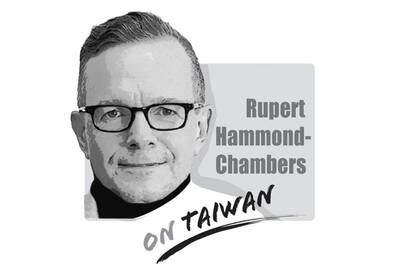At a public hearing to discuss draft amendments to the Act for Education Development of Schools in Remote Areas (偏遠地區學校教育發展條例), research by the National Academy for Educational Research was presented that referred to post-bachelor’s degree programs as “back doors” for acting teachers — a category of substitute teachers working semi-permanently — to legitimize themselves, implying that they are unqualified.
It was an unbelievable statement — blatantly discriminatory and an attempt to strip away the rights of acting teachers, who have long faced unequal treatment — that would eliminate any opportunities for them to pursue further education and become formal teachers.
The fundamental issue is that full-time teachers should not be divided into “formal” and “acting” categories. The institutional separation stigmatizes and stereotypes acting teachers, leading the public to view them as teachers who could not pass the qualification exams and be licensed. That creates the false impression that acting teachers are inherently less capable, thereby justifying any unfair treatment they receive.
However, if acting teachers truly lack ability, then why are they allowed to teach and complete administrative duties at schools?
This is a major contradiction.
An ideal approach would be that all teachers who pass the selection process be recognized as formal teachers, with their rights and responsibilities governed by the same regulations that apply to formal teachers. That would eliminate the “official” versus “acting” distinction. The selection process could return to the standard, single-round selection process — through which candidates are either accepted, waitlisted or rejected — without the need for second, third or other rounds that continuously manufacture the image of temporary, second-tier acting teachers. Teachers who are dedicated to their role should not be subjected to this absurd social hierarchy.
The Ministry of Education should no longer restrict admission to teacher education programs to enrolled students. Many people hold college degrees — some even have graduate degrees. The requirement that only enrolled students can attend teacher education programs forces motivated people with degrees to re-enroll in graduate school just to gain access to the programs, which is a waste of resources. The situation is even more disheartening for acting teachers, who have already completed three rounds of recruitment and still do not have a teaching certificate. For them, the path to becoming a formal teacher is even more difficult.
The suggested reforms are closely connected, but it might be more feasible to first relax eligibility requirements for teacher education programs before reviewing the teacher employment system. Of course, it is also necessary to consider other supporting measures.
Regardless of the implementation order, it is clear that the authorities created the unique category of acting teacher while simultaneously discriminating against those classified as being part of it.
Setting excessively high thresholds for teacher education and training makes it difficult for professionals from other fields to become teachers. Such policies have damaged the image of the teaching profession and teachers’ rights to pursue further professional development.
Taiwan faces a national crisis, with fewer people willing to enter the teaching profession. Those responsible must learn from their mistakes, earnestly consider the root cause, and provide teachers with the educational and transitional justice they deserve.
Chang Jui-chuan is a lecturer in National Chung Hsing University’s Department of Foreign Languages and Literature.
Translated by Kyra Gustavsen
Having lived through former British prime minister Boris Johnson’s tumultuous and scandal-ridden administration, the last place I had expected to come face-to-face with “Mr Brexit” was in a hotel ballroom in Taipei. Should I have been so surprised? Over the past few years, Taiwan has unfortunately become the destination of choice for washed-up Western politicians to turn up long after their political careers have ended, making grandiose speeches in exchange for extraordinarily large paychecks far exceeding the annual salary of all but the wealthiest of Taiwan’s business tycoons. Taiwan’s pursuit of bygone politicians with little to no influence in their home

In 2025, it is easy to believe that Taiwan has always played a central role in various assessments of global national interests. But that is a mistaken belief. Taiwan’s position in the world and the international support it presently enjoys are relatively new and remain highly vulnerable to challenges from China. In the early 2000s, the George W. Bush Administration had plans to elevate bilateral relations and to boost Taiwan’s defense. It designated Taiwan as a non-NATO ally, and in 2001 made available to Taiwan a significant package of arms to enhance the island’s defenses including the submarines it long sought.
US lobbyist Christian Whiton has published an update to his article, “How Taiwan Lost Trump,” discussed on the editorial page on Sunday. His new article, titled “What Taiwan Should Do” refers to the three articles published in the Taipei Times, saying that none had offered a solution to the problems he identified. That is fair. The articles pushed back on points Whiton made that were felt partisan, misdirected or uninformed; in this response, he offers solutions of his own. While many are on point and he would find no disagreement here, the nuances of the political and historical complexities in
Taiwan faces an image challenge even among its allies, as it must constantly counter falsehoods and misrepresentations spread by its more powerful neighbor, the People’s Republic of China (PRC). While Taiwan refrains from disparaging its troublesome neighbor to other countries, the PRC is working not only to forge a narrative about itself, its intentions and value to the international community, but is also spreading lies about Taiwan. Governments, parliamentary groups and civil societies worldwide are caught in this narrative tug-of-war, each responding in their own way. National governments have the power to push back against what they know to be